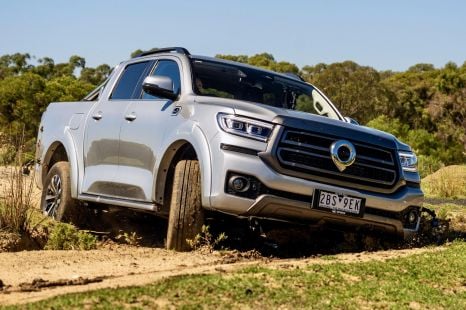

Max Davies
2026 GWM Cannon Ultra review
6 Days Ago
The first step in Lotus' new age is a big, electric SUV to take on the Lamborghini Urus. How does the Eletre step up?
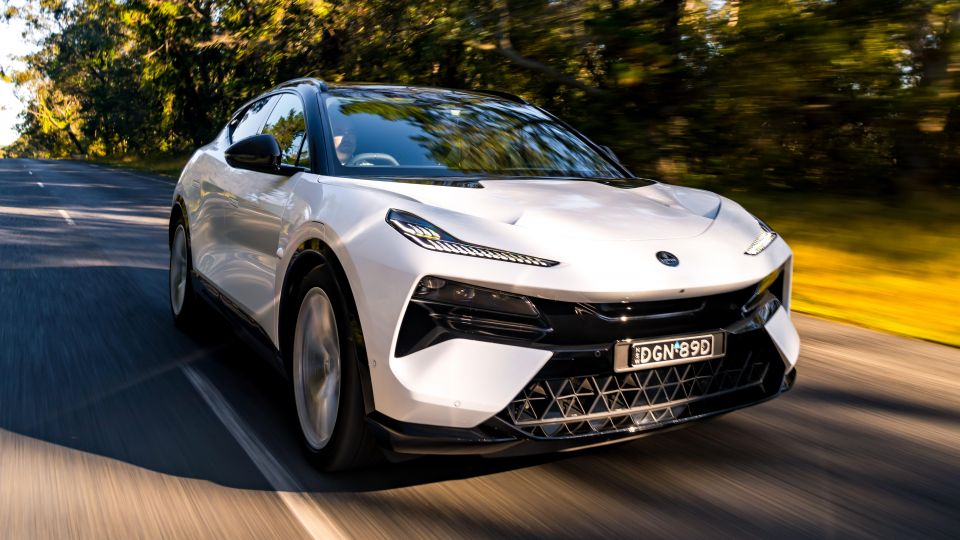


Quickly see how this car stacks up against its competition. Select any benchmark to see more details.
Where expert car reviews meet expert car buying – CarExpert gives you trusted advice, personalised service and real savings on your next new car.
You’re looking at the future of Lotus.

Although the petrol-powered Emira sports car looks most like what we’ve come to know and love from Lotus, the all-electric Eletre SUV and Emeya sedan will be the cars driving its volume.
Where the Emeya lobs in a crowded pool of electric sedans and liftbacks, the Eletre SUV is competing in a very different market.
It doesn’t really have any direct electric rivals yet, given it’s a bigger and sportier take on the formula than the BMW iX and Mercedes-Benz EQS SUV. Instead, it’s shooting for the likes of the Lamborghini Urus, Bentley Bentayga, and BMW XM – does the Eletre have what it takes to make an impact?
The Eletre has been treated to some of the biggest price cuts we’ve seen in recent times, with between $35,000 and $50,000 removed from the starting sticker.
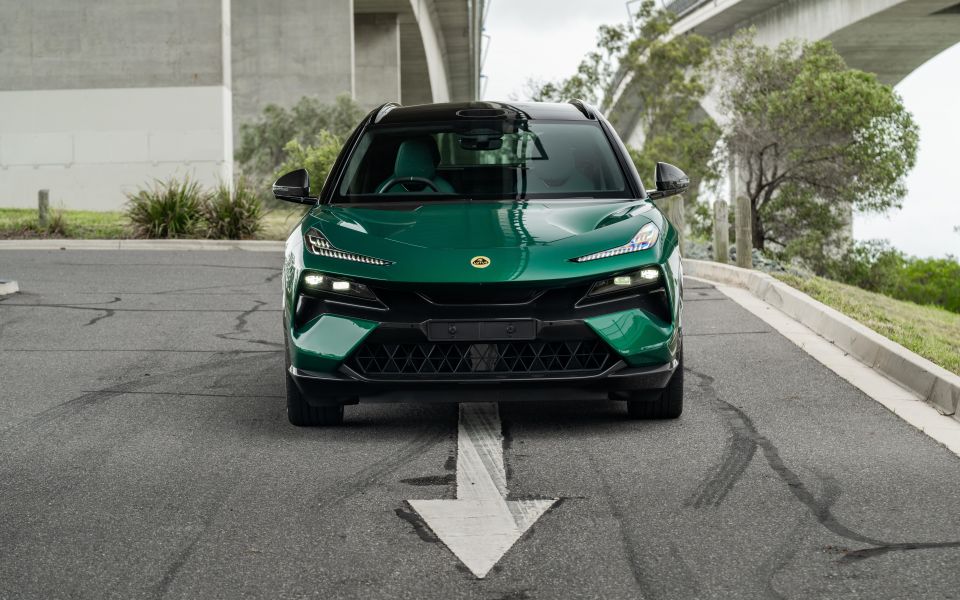
| Model | Price before on-roads |
|---|---|
| 2025 Lotus Eletre | $189,990 (-$49,010) |
| 2025 Lotus Eletre S | $229,990 (-$39,010) |
| 2025 Lotus Eletre R | $279,990 (-$35,010) |
To see how the Eletre lines up against the competition, check out our comparison tool.
Buy your new car without the stress. It's fast, simple and completely free.

Great service from Travis and team, second time I have used this business would not hesitate to recommend them to anyone
Craig C.
Purchased a Ford Ranger in Sunshine Coast, QLD
CarExpert helped Craig save $7,224 on his Ford Ranger, now let us save you on your next new car.
Get your BEST priceThis is a really impressive cabin, as is the case with the related Emeya.
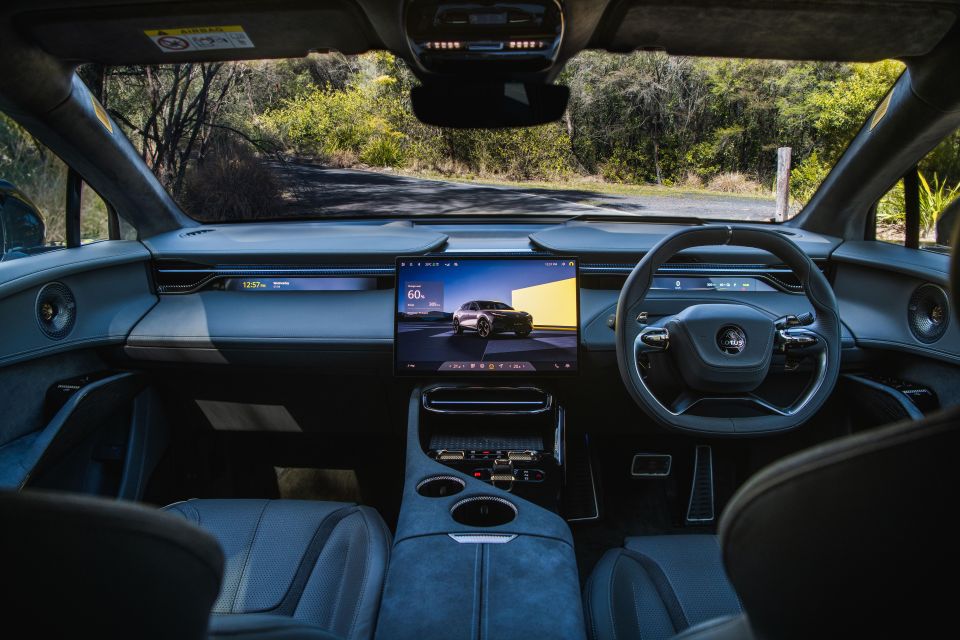
Although the idea of clean lines and lots of high-resolution screens isn’t unique, the execution here sets it apart. From the waxy leather trim to the toggles on the steering wheel, to the finish on the transmission tunnel, it feels high-end.
It’s also very comfortable. The front seats are generously padded, with enough bolstering to keep you in place in the corners, and the expansive central tunnel leaves plenty of space for your elbow on long trips.
Flashy gold highlights on some of the toggles and details like the soft-drop bases on the cupholders, add to the high-end feeling.
Lotus was one of the first brands to commit to using the Unreal Engine to drive its cabin graphics. The same tech underpins popular video game Fortnite, and it makes for infotainment that is right at home in the iPad age.
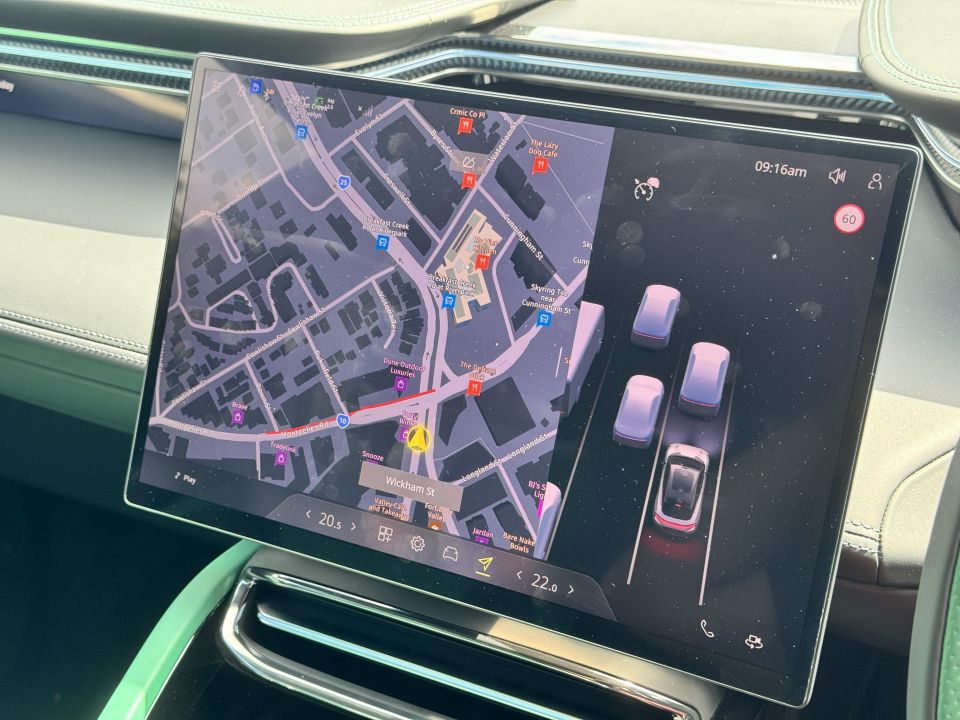
There’s still some work to be done on the finer details, though. Changing drive modes brings up a slick graphic, but when it goes away the car defaults to its home screen instead of whatever you were doing previously – which means you manually have to reopen CarPlay, for example.
It’s the sort of thing that can be fixed with a software update, thankfully.
The slim displays in front of the driver and passenger are a nice touch, given a growing number of brands want to run everything through a single display.
All the boring, practical stuff is taken care of here. There are usable cupholders, and plenty of storage bins around, not to mention enough USB-C ports to keep an army’s worth of devices charged.
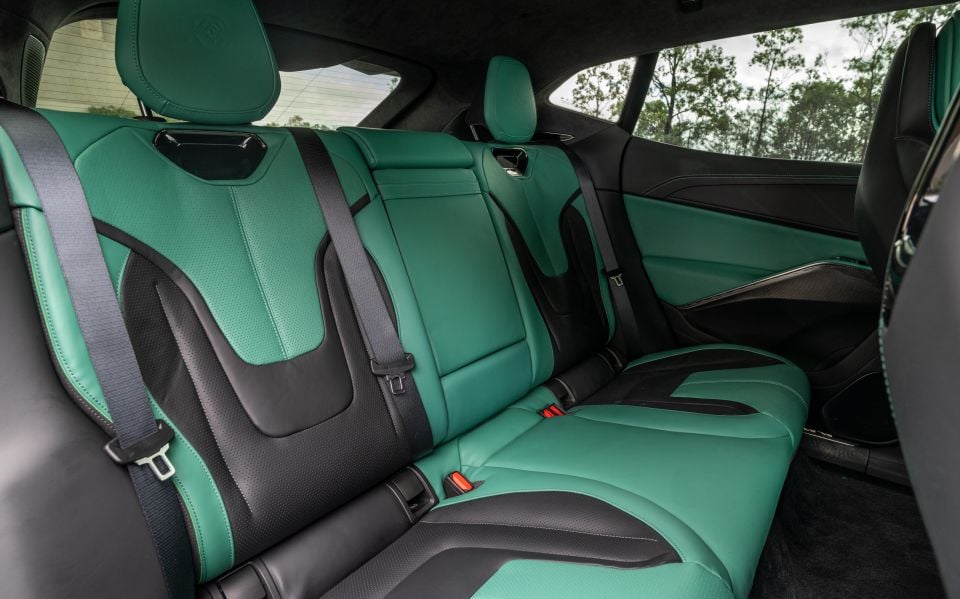
Rear seat space is impressive. Although it looks quite compact in pictures, the Eletre is actually a similar length to a BMW X7.
That means there’s acres of legroom, even behind tall adults, and plentiful headroom.
It’s properly palatial back there, and kids will appreciate the air vents and USB-C charge points – not to mention the touchscreen between the front seats, which allows them to take charge of their own climate control.
ISOFIX points feature on the outboard rear seats, and there’s a trio of top tether points for child seats.
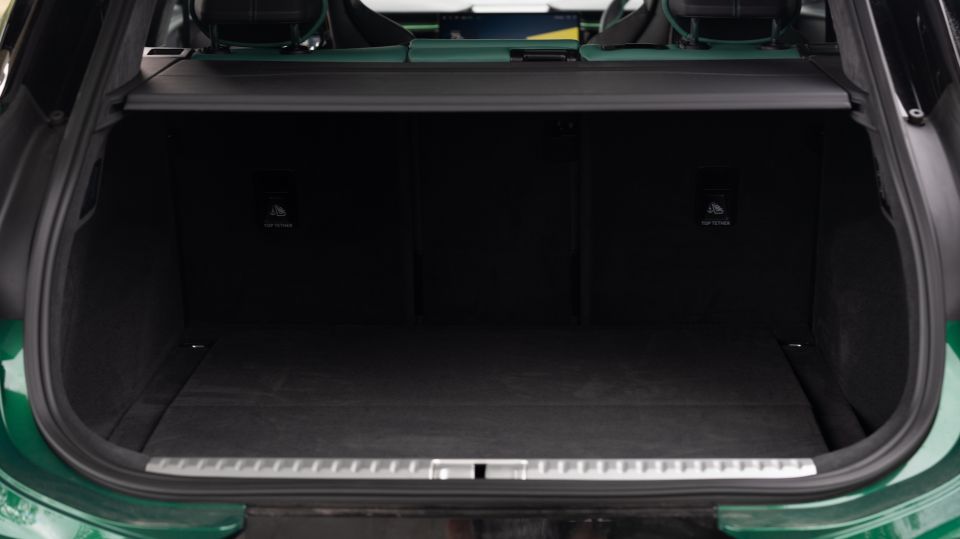
| Dimensions | Lotus Eletre S |
|---|---|
| Length | 5103mm |
| Width | 2231mm (incl. mirrors) |
| Height | 1630mmmm |
| Wheelbase | 3019mm |
| Cargo capacity | 688 litres (5 seats) 1532 litres (2 seats) |
To see how the Eletre lines up against the competition, check out our comparison tool.
Despite its prodigious outputs, this isn’t the most powerful version of the Eletre.
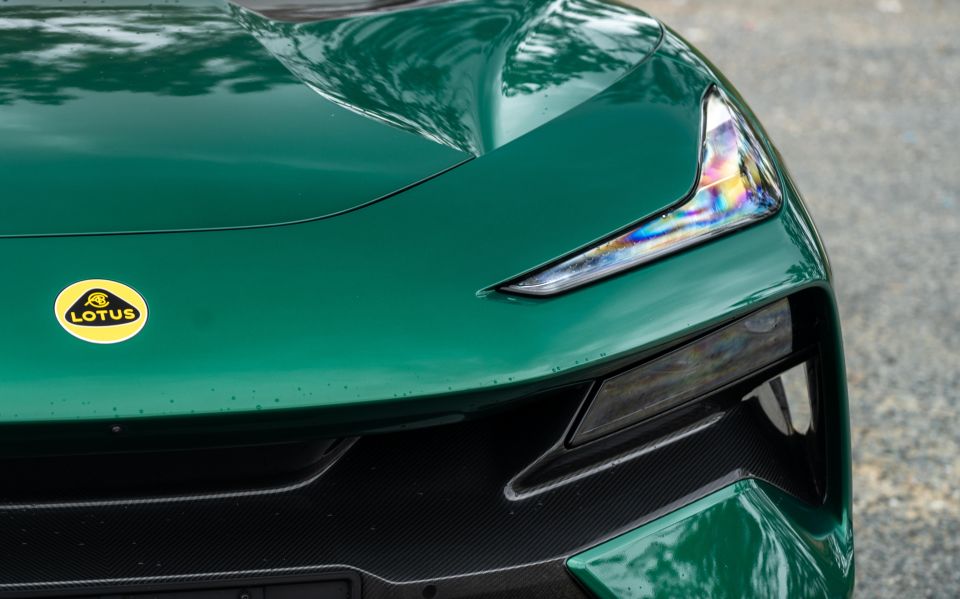
| Specifications | Lotus Eletre S |
|---|---|
| Drivetrain | Dual-motor electric |
| Battery | 112kWh lithium-ion |
| Power | 450kW |
| Torque | 710Nm |
| Driven wheels | All-wheel drive |
| Weight | 2550kg (tare) |
| 0-100km/h (claimed) | 4.5 seconds |
| Power consumption (claimed) | N/A |
| Power consumption (as tested) | N/A |
| Claimed range | 535km |
| Max AC charge rate | 22kW |
| Max DC charge rate | 355kW |
To see how the Eletre lines up against the competition, check out our comparison tool.
Our time behind the Eletre was brief. We’ve spent some time with the Eletre in Brisbane, and will spend more time with the car in the coming weeks.
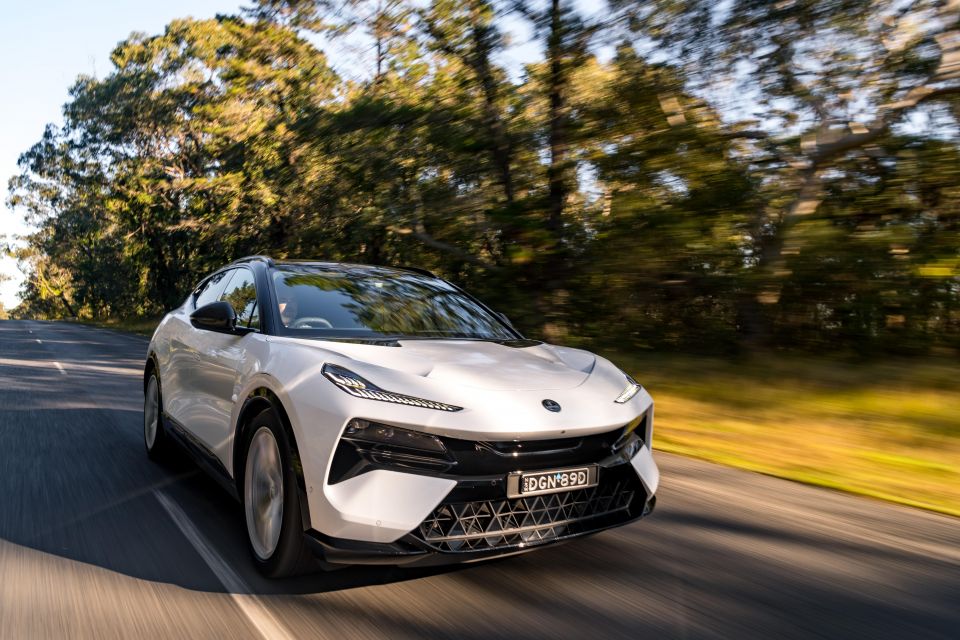
What stood out during our quick spin was the refinement. Having hopped out of the Emira, which is noisy and direct, the Eletre was like another world entirely.
From the cushy air-sprung ride to the level of noise suppression on scrappy Australian country highways, this is a luxurious way to get around. It’s also fast, when you consider how big and heavy it is.
Put your foot down and it squeezes you back in your seat, with no fuss or noise. Although a claimed 4.5-second sprint to 100km/h isn’t going to give Tesla any sleepless nights, it’s still fast enough to get your attention…
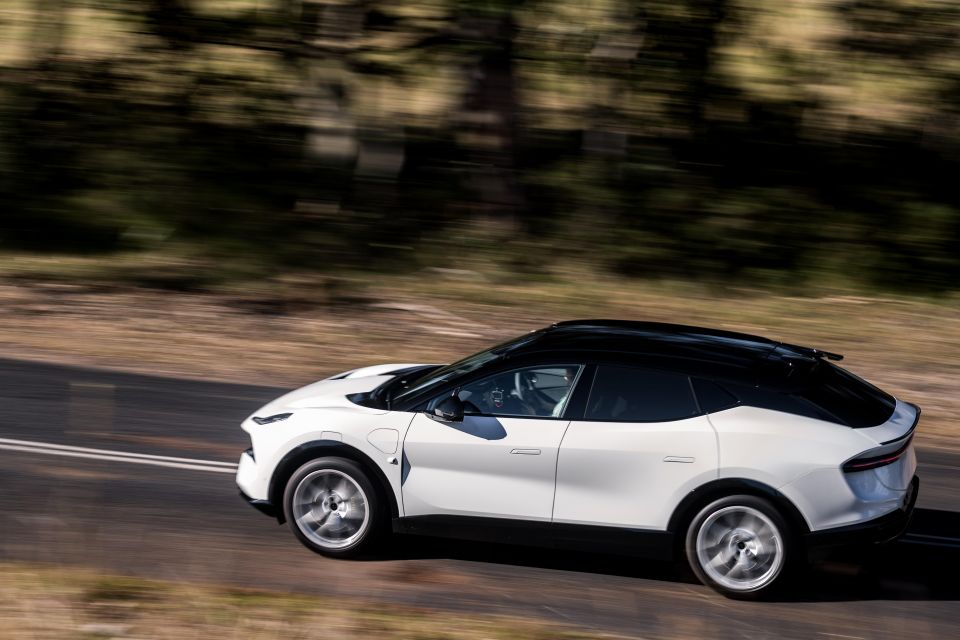
When you’re not in a hurry, there’s a real sense of refinement behind the wheel.
Road and wind noise are conspicuous by their absence at 80km/h on coarse Australian country highways, and the electrically assisted steering doesn’t seek out cambers or follow ruts in the road like the chatty hydraulic rack in the Emira sports car. That’s in keeping with this car’s remit as a long-haul cruiser with space for the whole family.
Ride quality from the air suspension is impressive. It isn’t floaty or loose, but it breathes nicely with the road.
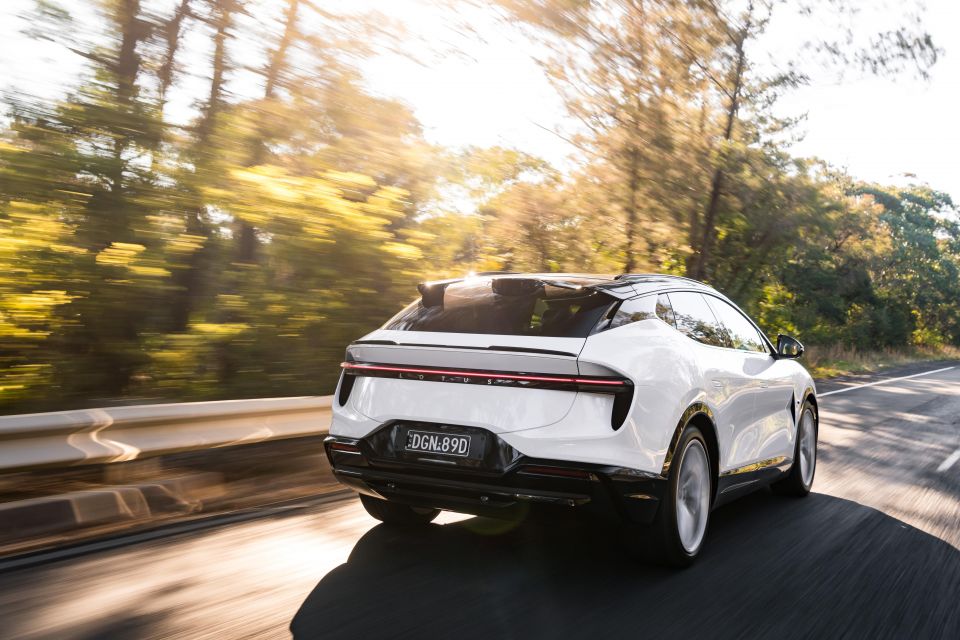
Flicking into Sport tightens things up, but based on our quick spin the Lotus engineering team has kept one eye on rough-road comfort across the range of suspension setups.
Worth noting here are the driver assist systems, which were very sensitive.
From the lane-keeping assist to the driver attention monitor, the Emeya falls into the same trap as countless other Chinese cars. As is the case with the infotainment, a software update could be all that’s required.
There are three members of the Eletre range.
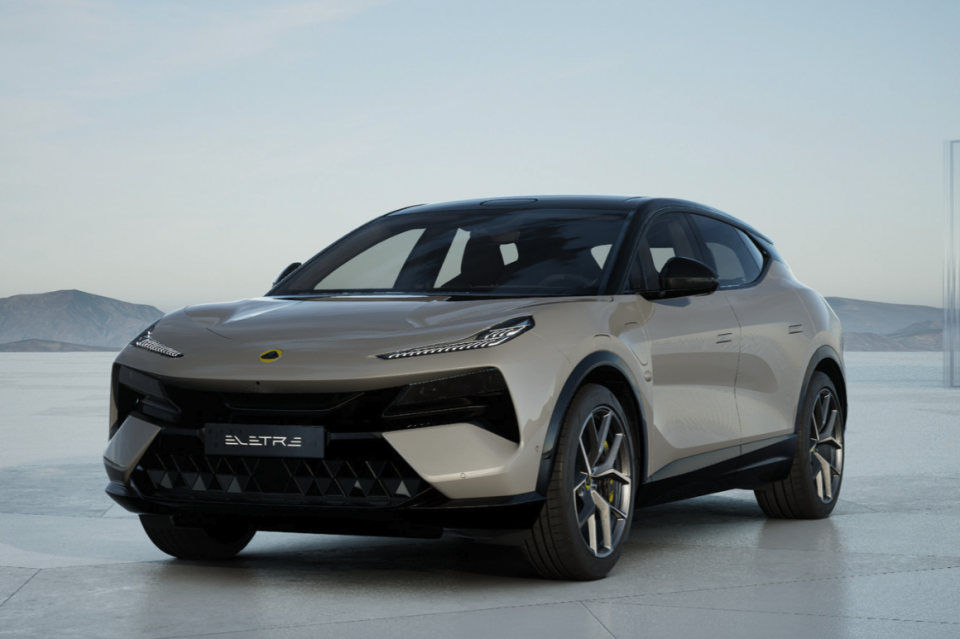
Standard kit on the base Eletre includes:
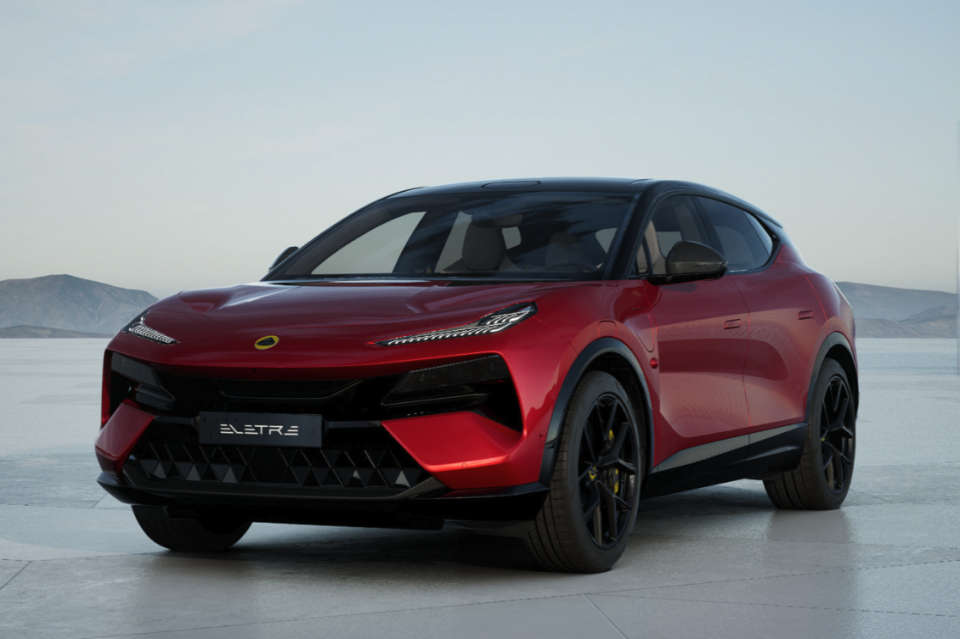
Moving to the Eletre S brings:
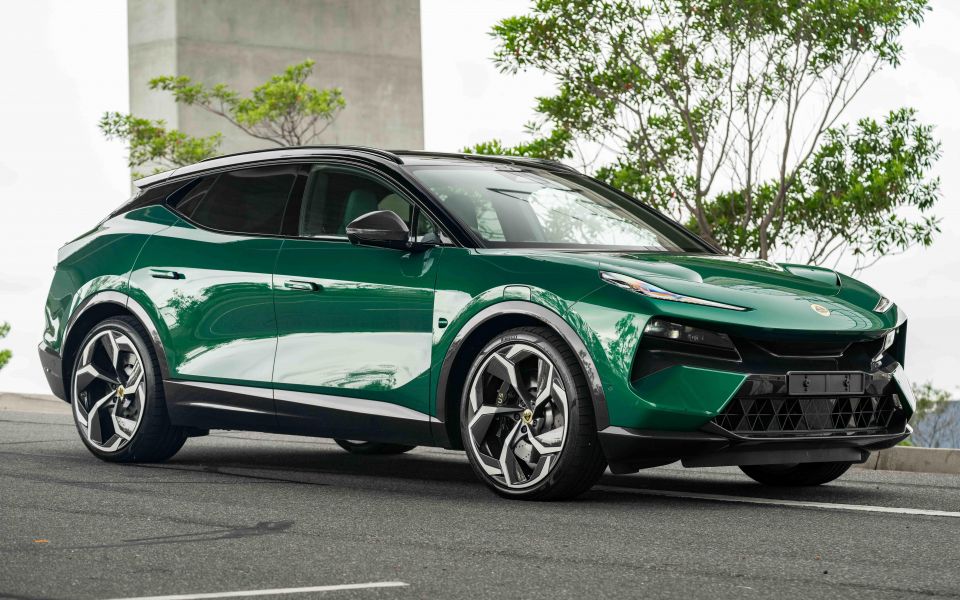
Where expert car reviews meet expert car buying – CarExpert gives you trusted advice, personalised service and real savings on your next new car.
Moving to the Eletre R adds:
There are various standalone and packaged options available. You can view details on these on the Eletre configurator.
The Lotus Eletre hasn’t been crash tested by Euro NCAP.
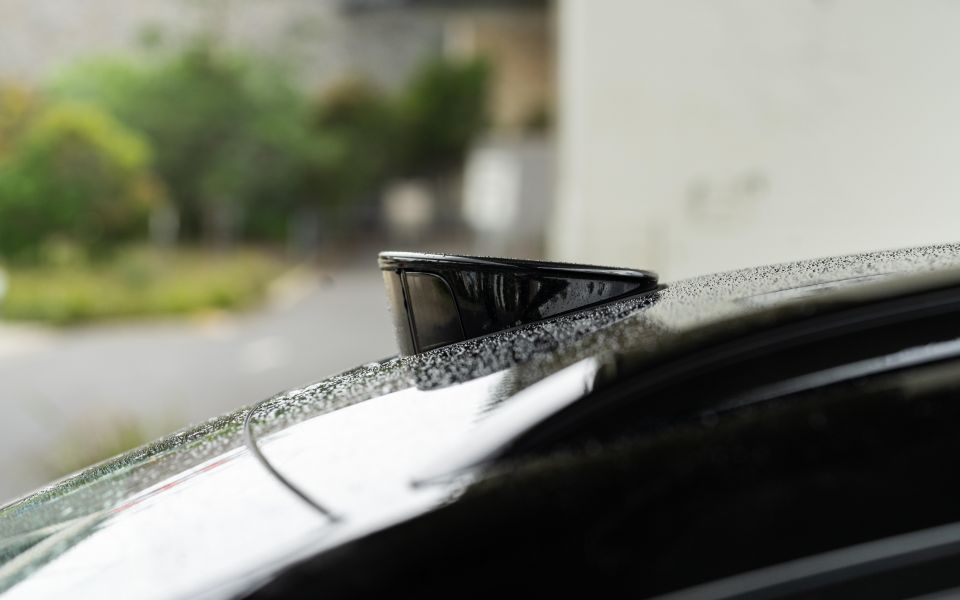
Standard safety equipment includes:
Lotus backs its cars with a five-year warranty, extending to eight years on the lithium-ion battery.
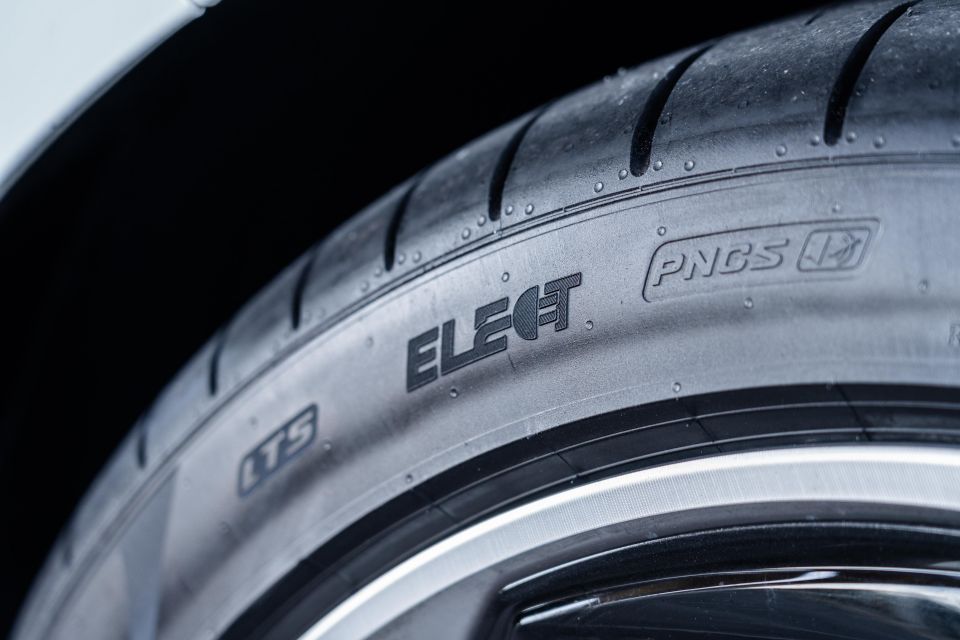
| Running costs | Lotus Eletre S |
|---|---|
| Warranty | 5 years, 150,000 kilometres |
| Battery warranty | 8 years, 200,000 kilometres |
| Roadside assistance | 5 years, unlimited kilometres |
| Service intervals | 12 months or 15,000 kilometres |
| Capped price servicing | TBC |
| Total capped price service cost | TBC |
Buy your new car without the stress. It's fast, simple and completely free.

Great service from Travis and team, second time I have used this business would not hesitate to recommend them to anyone
Craig C.
Purchased a Ford Ranger in Sunshine Coast, QLD
CarExpert helped Craig save $7,224 on his Ford Ranger, now let us save you on your next new car.
Get your BEST priceLike the Emeya, the Eletre is a clear statement of intent from Lotus.

Although it won’t speak to the purists, there’s every chance some of those purists have a Porsche Cayenne or Audi Q7 in the garage to tow their Elise to the track on the weekend… and take their kids to school during the week, of course.
Lotus still has some kinks to iron out, but they’re related to software rather than the hardware.
All the metal, leather, and plastic bits look and feel pretty damn special, and we’ve already experienced what the Eletre can do in the corners.
Will the latest price cut help Lotus get the Eletre up and running on the sales charts? It has a better chance than before.
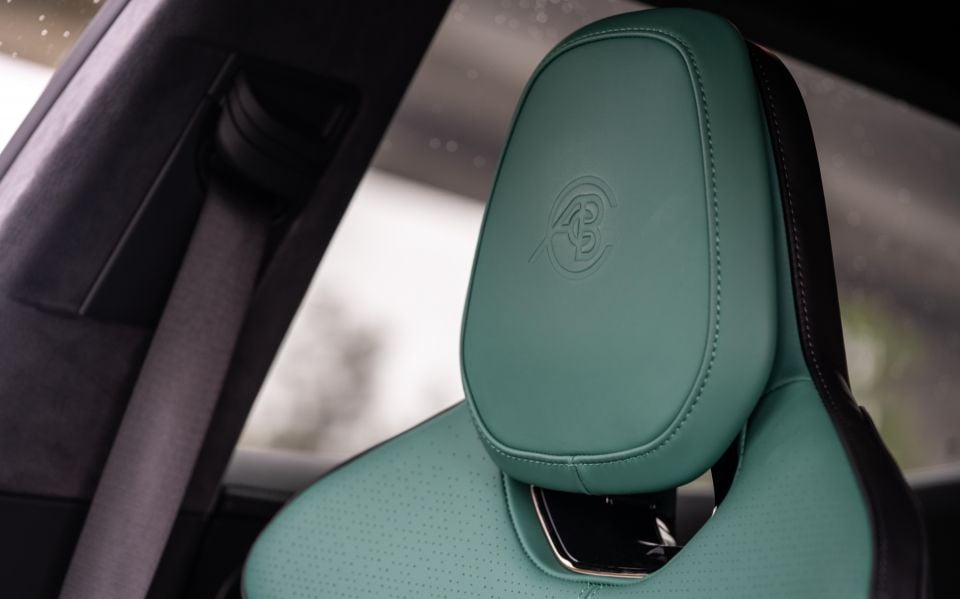
Click on an image to view the full gallery.
MORE: Buy a Lotus Eletre MORE: Everything Lotus Eletre
Where expert car reviews meet expert car buying – CarExpert gives you trusted advice, personalised service and real savings on your next new car.
Scott Collie is an automotive journalist based in Melbourne, Australia. Scott studied journalism at RMIT University and, after a lifelong obsession with everything automotive, started covering the car industry shortly afterwards. He has a passion for travel, and is an avid Melbourne Demons supporter.


Max Davies
6 Days Ago
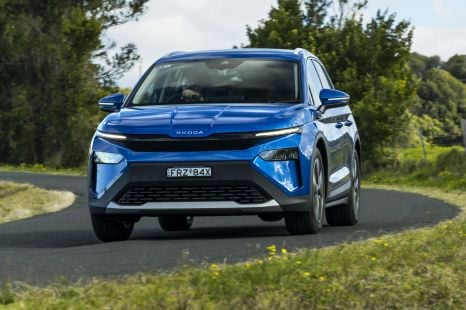

Josh Nevett
4 Days Ago
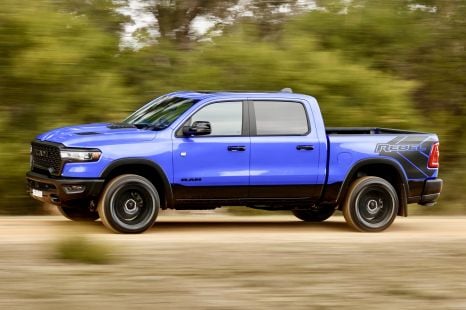

Max Davies
4 Days Ago
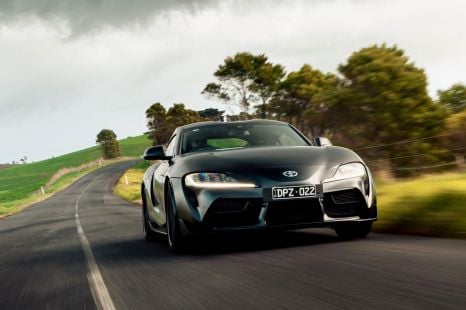

Max Davies
3 Days Ago
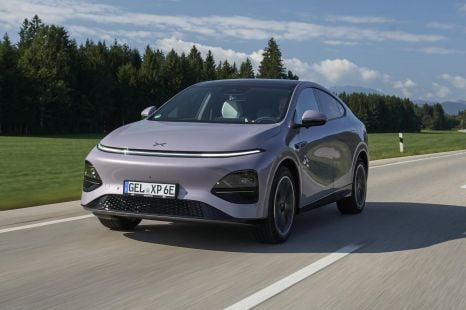

Neil Briscoe
2 Days Ago
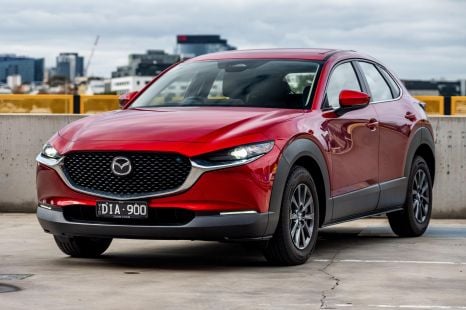

Max Davies
13 Hours Ago